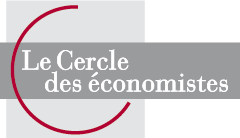Are we capable of anticipating new crises?
Overview
Some notions ‘become amortised in routine use’ (J. Lacan). But the recurrent use of the notion of crisis, in economics, far from being amortised, is not a matter of an argument of language. For global capitalism, it is now a permanent reality, as evidenced by monetary and financial crises, stock market crashes, oil shocks, violent recessions, etc. Previously confined to emerging countries, crises are not sparing industrial countries and are spreading internationally, as we saw with the Great Financial Crisis of 2008-09, then with the crisis in the euro zone, and we are still seeing today with the Covid crisis and the global recession that it has caused. Finally, crises are not limited to the economy. Is there not talk of a crisis of liberal democracy or multilateralism? In order to grasp the future and better anticipate its turbulence, it is important to take stock of what we know, albeit imperfectly, about crises in order to anticipate them: • At the macroeconomic or market level, where are crises most likely to occur again? • What are the fundamental economic factors, the historical trends, the main sources of tension, which are likely to turn into shocks that call into question the sustainability of the recovery or cause serious macroeconomic imbalances at the global level? • What are the political contexts, social movements, the state of public opinion, etc. that could transform these tensions into new economic crises? • What are the flaws, on the part of States or in terms of collective action, which could handicap the prevention and management of future crises?
Speakers





-
Université de Colombia
Coordinator

Moderator













